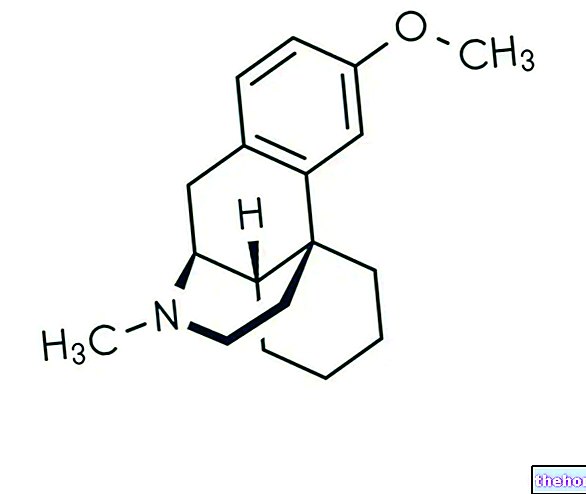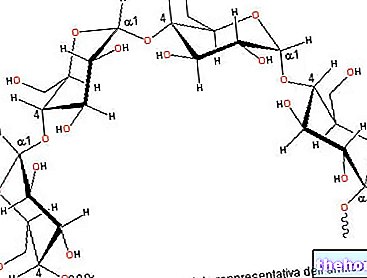Introduction
Quitting smoking means embarking on a certainly difficult path in which willpower must never be lacking.
However, willpower may not always be sufficient to definitively say goodbye to smoking, especially when the typical symptoms of withdrawal syndrome begin to arise (such as anxiety, irritability, frustration, anger, aggression, restlessness, agitation, depression, decreased concentration and attention and increased appetite).

The addiction to tobacco smoke (or smoking) is, in fact, considered as a form of drug addiction caused by nicotine.
Nicotine is a stimulant alkaloid found in tobacco leaves. Once inhaled with the smoke, this molecule enters the circulation and interacts with its own receptors (nicotinic receptors) present in the brain, thus causing the classic sensation of pleasure and gratification that smokers experience.
Various types of medications are available to help smokers become ex-smokers, but some natural remedies can also be effective. Natural remedies can help above all to counter - or at least alleviate - the symptoms deriving from the withdrawal syndrome.
Some of these remedies will be briefly outlined below. However, it is good to remember that, before taking any type of remedy or natural supplement for curative purposes, it is always necessary to consult your doctor in advance to be sure that there are no contraindications and that there is no risk of potentially interactions. dangerous with any other drug therapies already in place.
Medicinal plants for smoking cessation
Some medicinal plants can be very useful to the smoker who wants to say enough to nicotine by helping him to counteract the symptoms induced by his withdrawal.
Preparations based on ginseng, rhodiola, echinacea and eleutherococcus, can be used as an aid against the stressful situation that arises when an individual stops smoking. These plants, in fact, are defined "adaptogens", a term used to indicate any remedy or drug capable of increasing the non-specific resistance of the organism in response to stressful situations of both physical and psychological nature.
Hypericum - also known as St. John's wort - is a plant with antidepressant and sedative properties and can be used in conjunction with conventional anti-smoking therapies to counteract the symptoms induced by nicotine withdrawal.
Similarly, the use of herbal preparations with tranquilizing and sedative properties can also be a valuable aid in controlling the symptoms of withdrawal from smoking such as agitation, restlessness, anxiety and irritability. Among the best known sedative plants, we remember the valerian, the escolzia, the hawthorn, the kava kava, the lemon balm and the passionflower.
Berberine to quit smoking
Berberine is a natural molecule - more precisely, an alkaloid - present in many plants of the Berberidaceae family (such as, for example, barberry), but is also found in plants such as hydraste and hawthorn.
Berberine is best known for its cholesterol-lowering properties. A study has, in fact, shown how this molecule is capable of reducing blood levels of cholesterol and triglycerides.
Furthermore, some researches have been carried out that propose the use of berberine in the therapy of smoking.
In reality, berberine is not able to decrease the desire to smoke or reduce the symptoms of withdrawal, but it has a protective action on the lungs and mucous membranes of the respiratory tract directly exposed to tobacco smoke.
From some studies, in fact, it has emerged that berberine - thanks to its anti-inflammatory properties - is able to reduce inflammation and lung damage caused by smoking. Yet another study, however, has shown how berberine is able to increase the "activity of oral peroxidases which are usually inhibited by smoking, thus favoring an" antioxidant type action.
However, despite the encouraging results obtained, more studies and insights are certainly needed.
N-acetylcysteine for smoking cessation
N-acetylcysteine (or NAC) is a derivative of the amino acid L-Cysteine and is mainly used for its strong antioxidant properties.
More precisely, N-acetylcysteine is obtained by adding an acetyl group to the N-terminal end of the aforesaid amino acid.
Cysteine is an amino acid that is part of the composition of glutathione (a tripeptide composed of glycine, cysteine and glutamate), the main antioxidant agent present in the lung.
Many studies have shown that tobacco smoke is a powerful oxidizing agent, as both the gaseous phase of cigarette smoke and the corpuscle phase are rich in oxygen radicals, chemical species that are extremely toxic to the cells of our body. Furthermore, smoking causes a decrease in the levels of glutathione in the lungs, thus preventing it from carrying out its precious antioxidant activity.
The intake of N-acetylcysteine can favor an increase in glutathione levels and, consequently, favors an antioxidant type action.
In addition, a recent study has shown that N-acetylcysteine may also be able to decrease the sense of gratification induced by nicotine and can help maintain abstinence from it when you decide to quit smoking.
However, despite the potential efficacy of N-acetylcysteine in the treatment of smoking, further clinical investigations are needed to evaluate all the potential benefits of this molecule on smokers.
Melatonin for smoking cessation
Melatonin is a hormone produced by our body (in particular, by the pineal gland or epiphysis) which is entrusted with the task of regulating the circadian rhythm and the sleep cycle.
Melatonin is present in numerous supplements used mostly for the treatment of sleep disorders, although there is no lack of studies in which the use of melatonin is proposed in sports, in the therapy of neurodegenerative diseases induced by oxidative stress (such as, for example , Alzheimer's disease) and in the treatment of cardiovascular diseases.
In any case, melatonin has a certain sedative activity which makes it potentially useful in the treatment of nicotine withdrawal symptoms such as agitation, restlessness, anxiety, irritability and depression.
However, some studies have also investigated the potential protective capabilities of melatonin against the respiratory tract of smokers. From one of these studies conducted on animals, it emerged that melatonin can decrease the damage caused by oxidative stress at the level of the larynx by stimulating the production of antioxidant agents. Yet another study, also conducted on animals, has shown how melatonin may be able to reduce the lung inflammation that characterizes chronic obstructive pulmonary disease (or COPD) induced by cigarette smoke. Finally, a further study conducted on animals has shown the potential efficacy of melatonin in preventing restenosis (i.e. narrowing) of the carotid arteries induced by smoking.
Even in this case, however, further investigations and clinical tests are necessary before proceeding with the use of melatonin for these therapeutic purposes.




























